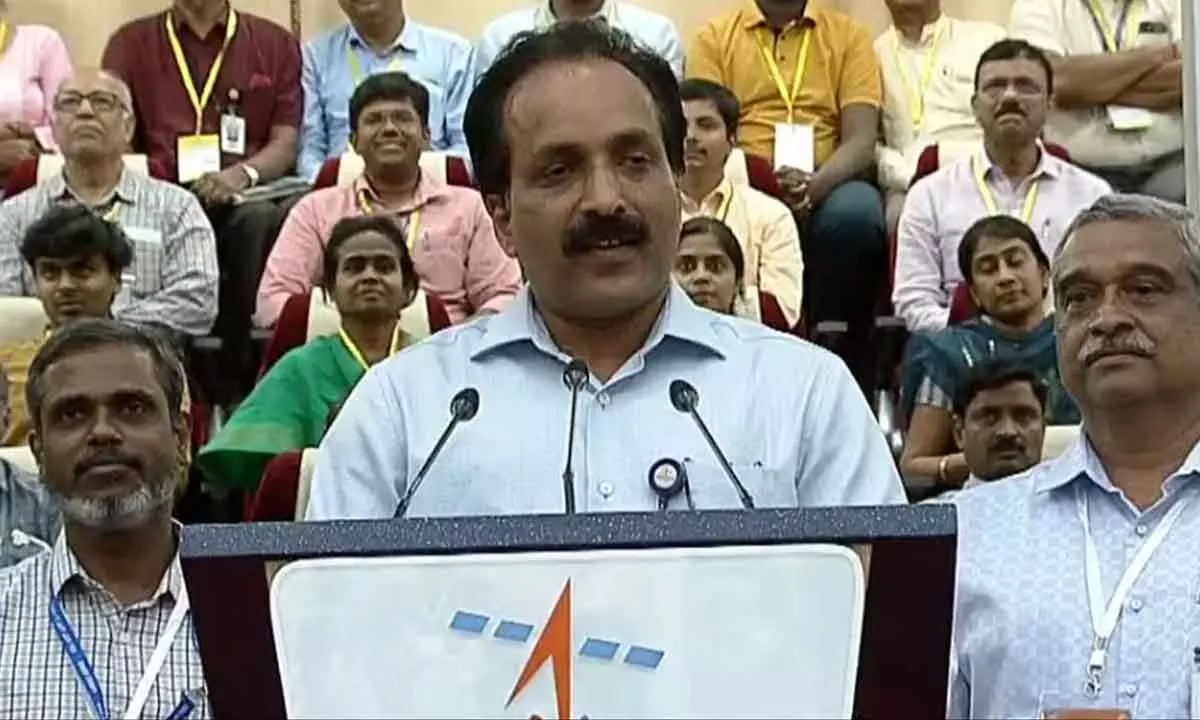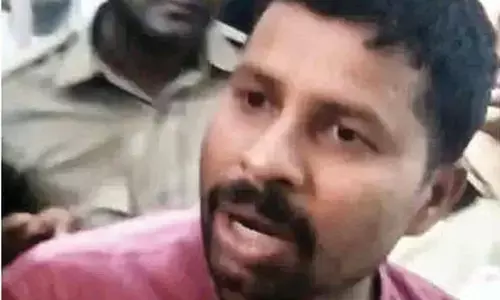I consider rockets like a baby, says ISRO chairman S Somanath after successful launch of Chandrayaan-3
Share :

Hyderabad: Expressing his deep love and association with rockets, ISRO chairman S Somanath on Saturday said he considers the launch vehicles as babies. Somanath said he enjoyed the launch of Phase-I of Chandrayaan-3 on Friday, while adding that he had gone through the entire data and marvelled at "how beautiful the rocket was". ISRO on Friday successfully launched its third moon mission, this time a far more complicated 41-day voyage to reach the lunar south pole where no other country has gone before.
The space agency said the technically challenging soft landing on lunar surface, which Chandrayaan-2 could not achieve, has been planned for 5.47 pm on August 23. Delivering his address at the 12th Convocation of IIT Hyderabad in neighbouring Sangareddy district, Somanath said "As an engineer and scientist, I have a love for rockets. I consider the rocket like a baby, seeing its birth, its growth, its problems of growth, its emotions and developing a deep understanding of its mechanics and dynamics and its life as such." Referring to the previous Chandrayaan-2 launch, he said it had almost 2,000 measurements that were coordinated which were in the form of graphs and curves.
He further said ISRO converts thousands of measurements into curves and study models and explains how it performs. "For example, the last Chandrayaan rocket, we had almost 2,000 measurements and finally they came to us as graphs, curves. Like a doctor looking at the ECG, we look at these graphs. We have created an attachment to those curves and graphs and we can understand by looking at ups and downs what exactly is its speed...how its going. This is something very interesting to understand a machine and yield a sense of it," he said. On human space travel, he said everybody asks him why human beings should travel to space and explore the planets and why robots cannot do this job? He said one of the difficulties is that the robots lack sensory perception and emotions that come out of the experiences and the resultant decision-making process.
Somanath said when ISRO embarks on human space flight, they need medical doctors to study the metabolism and human physique in surviving the extreme conditions of flight, which include high acceleration and vibration sensitivity, weightlessness, and prolonged exposure to mild radiations. "We are currently developing and designing a test set-up to evaluate them". The growth in material science, microelectronics, quantum technologies, data sciences, AI and ML, biotechnology will make the life of a human being much better than that we experience today, he said.
He said harnessing the power of technology is the solution to solve the challenging problems of poverty, malnutrition, security of the nation, education and job for all. "So, we believe that you people (IIT graduates) are those torchbearers of the future especially those who are going to create future technologies and future innovations. You are holding the key, he added.


















